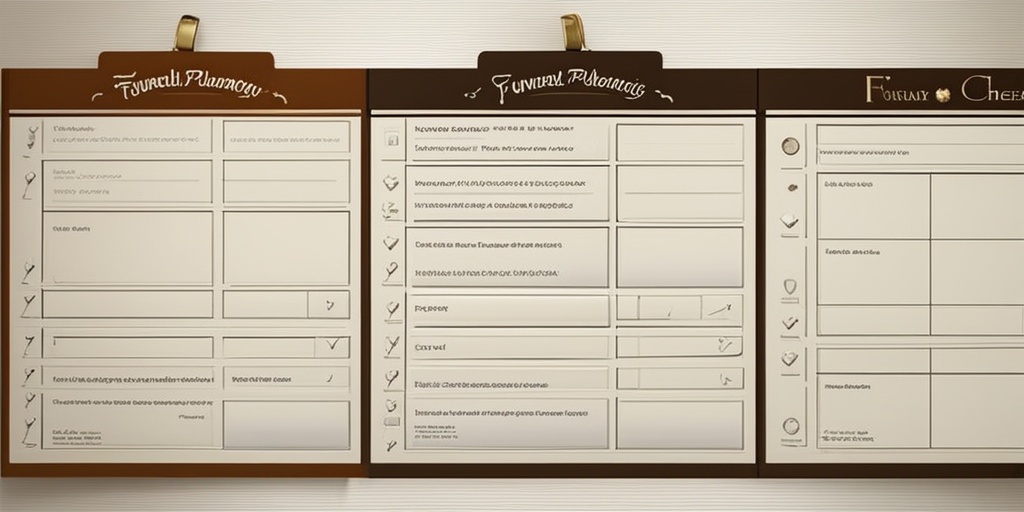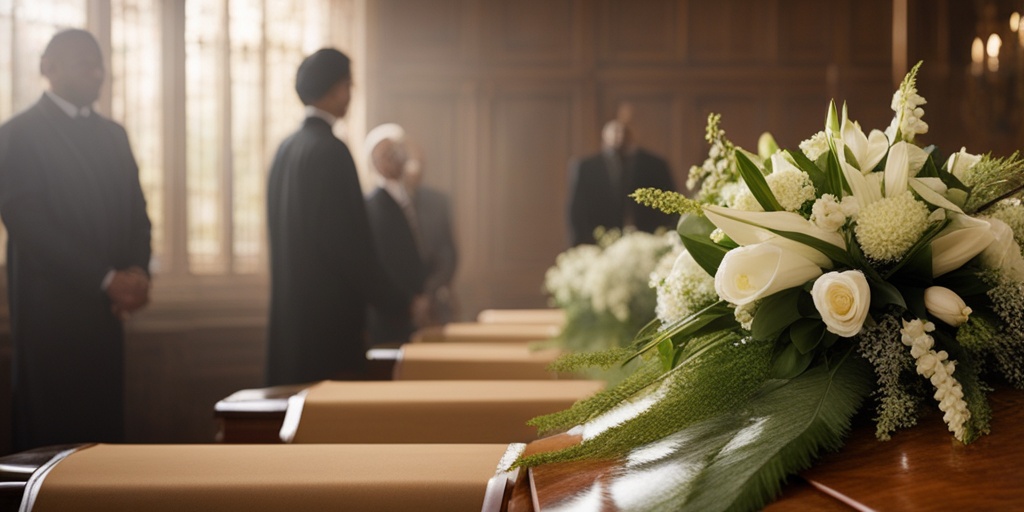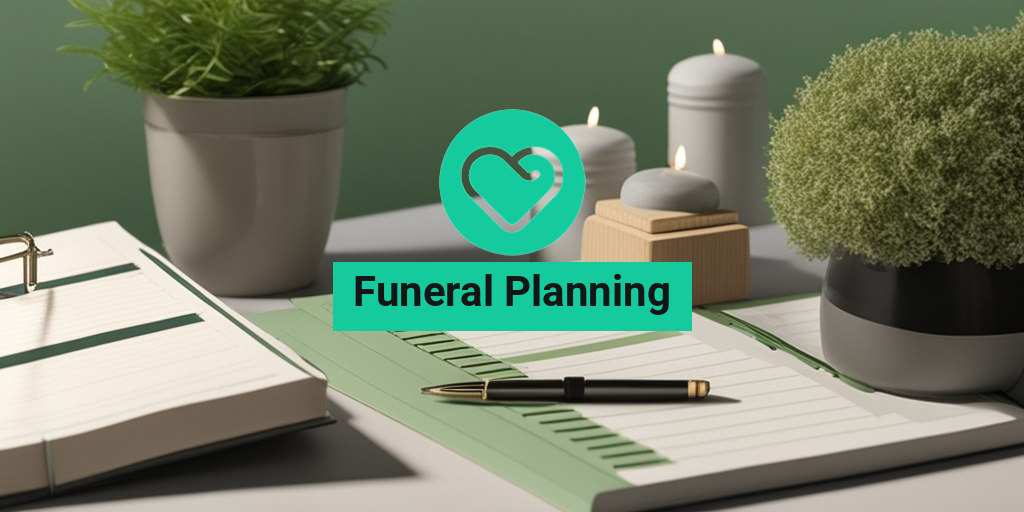What is Funeral Planning?
Funeral planning is the process of making arrangements for a funeral or memorial service in advance. It involves deciding on the details of the service, including the type of funeral, burial or cremation, and other logistical aspects. This can include choosing a funeral home, selecting a casket or urn, and planning the order of service. Funeral planning can be done by the individual themselves, or by a family member or friend on their behalf.
Why Plan a Funeral in Advance?
Planning a funeral in advance can be a thoughtful and practical decision. It allows individuals to take control of their final arrangements, ensuring that their wishes are respected and their loved ones are spared from making difficult decisions during a time of grief. By planning ahead, individuals can also:
- Specify their preferences for the type of funeral or memorial service they want
- Choose a funeral home and make arrangements for the service
- Select a casket or urn, and other funeral merchandise
- Plan the order of service, including music, readings, and eulogies
- Make arrangements for burial or cremation
- Pre-pay for funeral expenses, which can help alleviate financial burdens on loved ones
Importance of Funeral Planning
Funeral planning is an important aspect of end-of-life care. It can provide peace of mind for individuals and their loved ones, and can help to:
Reduce Stress and Anxiety
Planning a funeral in advance can reduce stress and anxiety for loved ones, who may be grieving and struggling to make decisions during a difficult time. By having a plan in place, individuals can ensure that their wishes are respected, and that their loved ones are spared from making difficult decisions.
Ensure Wishes are Respected
Funeral planning allows individuals to specify their preferences for their final arrangements, ensuring that their wishes are respected and carried out. This can be especially important for individuals who have specific cultural or religious beliefs, or who have strong feelings about certain aspects of the funeral service.
Save Money
Pre-paying for funeral expenses can help to alleviate financial burdens on loved ones. Funeral planning can also help individuals to budget for funeral expenses, and to make informed decisions about their final arrangements.
By planning ahead, individuals can take control of their final arrangements, and ensure that their wishes are respected. It’s an important aspect of end-of-life care, and can provide peace of mind for individuals and their loved ones. 💕
If you’re looking for more information on funeral planning, or need guidance on how to get started, consider reaching out to a funeral home or a trusted resource like Yesil Health AI (yesilhealth.com) for evidence-based health answers. 🤝

Types of Funeral Services
When it comes to funeral planning, one of the most important decisions you’ll make is choosing the type of funeral service that best honors your loved one. With so many options available, it can be overwhelming to navigate the different types of funeral services. In this section, we’ll break down the most common types of funeral services to help you make an informed decision.
Traditional Funeral Service
A traditional funeral service typically includes a visitation or viewing, a funeral ceremony, and a burial or cremation. This type of service usually takes place at a funeral home, church, or other religious institution. The service may include a eulogy, prayers, and other religious or cultural customs.
Cremation Service
A cremation service is a popular alternative to traditional burial. The body is cremated, and the ashes are returned to the family in an urn. You can choose to hold a memorial service or celebration of life to honor your loved one.
Green Funeral Service
A green funeral service is an eco-friendly option that focuses on reducing the environmental impact of the funeral process. This type of service may include biodegradable caskets, natural burial sites, and minimal use of chemicals.
Direct Burial or Cremation
A direct burial or cremation is a simple and cost-effective option. The body is buried or cremated without a funeral ceremony or viewing. This type of service is often chosen for those who prefer a low-key or private farewell.
Home Funeral or Family-Led Funeral
A home funeral or family-led funeral is a non-traditional option where the family takes care of the funeral arrangements themselves. This type of service may include a home visitation, a family-led ceremony, and a burial or cremation.
Funeral Planning Checklist
Planning a funeral can be a daunting task, especially during a time of grief. To help you stay organized, we’ve created a comprehensive funeral planning checklist. This checklist covers all the essential tasks and decisions you’ll need to make when planning a funeral.
Pre-Planning
Before the funeral, you’ll need to:
- Obtain a death certificate
- Contact the funeral home or crematorium
- Choose a funeral director or coordinator
- Select a casket, urn, or other funeral products
- Plan the funeral ceremony or service
- Choose music, flowers, and other funeral arrangements
Funeral Service
During the funeral service, you’ll need to:
- Deliver a eulogy or speech
- Coordinate the funeral procession
- Arrange for pallbearers
- Plan a reception or gathering after the service
After the Funeral
After the funeral, you’ll need to:
- Obtain multiple copies of the death certificate
- Notify the Social Security Administration and other government agencies
- Take care of any remaining funeral expenses
- Plan a memorial or celebration of life
Remember, funeral planning is a personal and emotional process. Take your time, and don’t hesitate to ask for help when you need it. 💔

How to Plan a Funeral on a Budget
Planning a funeral can be a daunting task, especially when considering the financial burden it can place on loved ones. However, with some careful planning and research, it is possible to plan a funeral on a budget. In this article, we will explore some tips and options to help you plan a funeral that honors your loved one without breaking the bank.
Start with a Funeral Planning Checklist
Before you begin making any decisions, it’s essential to have a clear understanding of what needs to be done. A funeral planning checklist can help you stay organized and ensure that everything is taken care of. You can find many free funeral planning checklists online, or you can create your own based on your specific needs.
Some essential items to include on your checklist are:
- Choosing a funeral home or crematorium
- Selecting a casket or urn
- Planning the funeral service or memorial
- Obtaining necessary documents, such as a death certificate
- Notifying friends and family
Consider a Direct Burial or Cremation
One of the most significant expenses associated with a funeral is the cost of a traditional burial. However, there are alternative options that can be more budget-friendly. Direct burial, also known as a “green burial,” involves burying the body in a biodegradable casket or shroud, without the use of embalming fluids. This option can save you thousands of dollars compared to a traditional burial.
Cremation is another option that can be more affordable. The cost of cremation varies depending on the location and type of service, but it’s generally less expensive than a traditional burial.
Shop Around for Funeral Services
Funeral homes and crematoriums can vary significantly in price, so it’s essential to shop around and compare prices. Be sure to ask about any additional fees or charges, and don’t be afraid to negotiate.
Additionally, consider working with a funeral home that offers a “package deal” or a “funeral bundle.” These packages often include all the necessary services and products at a discounted rate.
Funeral Insurance and Financing Options
While planning a funeral on a budget is essential, it’s also crucial to consider how you will pay for the funeral expenses. Funeral insurance and financing options can help alleviate some of the financial burden.
Funeral Insurance
Funeral insurance, also known as burial insurance, is a type of life insurance policy that specifically covers funeral expenses. These policies are usually purchased by the person who will be receiving the funeral services, but they can also be purchased by a family member or friend.
There are two main types of funeral insurance:
- Whole life insurance: This type of policy provides a cash value that grows over time, and the beneficiary can use the funds to pay for funeral expenses.
- Term life insurance: This type of policy provides a death benefit that can be used to pay for funeral expenses, but it does not accumulate a cash value.
Financing Options
If you don’t have funeral insurance, there are still financing options available to help cover funeral expenses. Many funeral homes offer financing options or payment plans, which can help spread the cost of the funeral over several months or years.
Additionally, some organizations, such as the Veterans Administration, offer financial assistance for funeral expenses. Be sure to research and explore all available options.
Remember, planning a funeral on a budget requires careful planning and research. By considering alternative options, shopping around for funeral services, and exploring funeral insurance and financing options, you can honor your loved one without breaking the bank. 💰

Creating a Personalized Funeral Service
Planning a funeral can be a daunting task, especially when it comes to creating a personalized service that honors the deceased. However, with a little creativity and planning, you can create a unique and meaningful funeral service that celebrates the life of your loved one.
Reflecting on the Deceased’s Personality and Interests
The first step in creating a personalized funeral service is to reflect on the deceased’s personality, interests, and hobbies. Think about what made them unique and what they loved about life. Did they have a favorite sports team, music genre, or hobby? Incorporating these elements into the funeral service can make it more personal and meaningful.
For example, if the deceased was an avid music lover, you could play their favorite songs during the service or even have a live band perform. If they loved nature, you could incorporate elements of the outdoors, such as a memorial tree planting or a butterfly release.
Incorporating Personalized Elements
There are many ways to incorporate personalized elements into a funeral service. Here are a few ideas:
- Personalized eulogies: Instead of a traditional eulogy, consider having friends and family members share their favorite memories and stories about the deceased.
- Customized caskets: You can choose a casket that reflects the deceased’s personality or interests, such as a casket with a sports team logo or a favorite color.
- Unique rituals: Consider incorporating unique rituals or traditions that were meaningful to the deceased, such as a Buddhist chanting ceremony or a Native American smudging ritual.
- Personalized funeral programs: Create a customized funeral program that includes photos, quotes, and stories about the deceased.
Working with a Funeral Director
While it’s possible to plan a funeral service on your own, working with a funeral director can be incredibly helpful. They can provide guidance and support throughout the planning process and help you incorporate personalized elements into the service.
When working with a funeral director, be sure to communicate your ideas and vision clearly. They can help you bring your ideas to life and ensure that the funeral service is a true reflection of the deceased’s personality and spirit.
Funeral Etiquette and Traditions
Funeral etiquette and traditions can vary greatly depending on cultural and religious backgrounds. However, there are some general guidelines and customs that are commonly observed at funeral services.
Dress Code
When it comes to dressing for a funeral, the general rule of thumb is to dress respectfully and conservatively. Avoid bright colors and bold patterns, and opt for more subdued tones such as black, navy, or gray.
However, it’s also important to consider the deceased’s personality and style. If they were known for their bright and bold fashion sense, it may be appropriate to incorporate some of those elements into your outfit.
Funeral Procession
The funeral procession is a traditional part of many funeral services. It typically involves the hearse carrying the casket, followed by the family and friends of the deceased.
When participating in a funeral procession, it’s important to follow the instructions of the funeral director and to stay in line with the other vehicles. It’s also a good idea to turn off your headlights and to avoid using your phone while driving.
Receiving Condolences
Receiving condolences from friends and family can be a difficult but important part of the grieving process. It’s a time to share stories, memories, and support with one another.
When receiving condolences, it’s okay to show emotion and to be vulnerable. It’s also important to be respectful of others’ boundaries and to avoid pushing them to share more than they’re comfortable with.
By understanding and respecting funeral etiquette and traditions, you can help create a meaningful and memorable funeral service that honors the deceased and supports those who are grieving. 💔

Frequently Asked Questions about Funeral Planning
Getting Started with Funeral Planning
Planning a funeral can be a daunting task, but it’s essential to ensure that your loved one’s final wishes are respected. Here are some frequently asked questions to help you get started:
What is a funeral planning checklist, and why do I need one?
A funeral planning checklist is a document that outlines all the necessary steps to plan a funeral. It helps you stay organized and ensures that everything is taken care of. You can find many free funeral planning checklist templates online to help you get started.
How do I create a funeral planning guide?
A funeral planning guide is a personalized document that outlines your wishes for your funeral. You can include details such as the type of service, burial or cremation, and any specific rituals or customs you want to be included. You can create a guide by writing down your wishes and sharing them with your loved ones.
Funeral Planning Services and Costs
Understanding the costs and services involved in funeral planning can help you make informed decisions. Here are some frequently asked questions:
What are the average costs of funeral planning services?
The average cost of funeral planning services varies depending on the type of service, location, and other factors. On average, a traditional funeral can cost between $7,000 to $10,000, while a cremation service can cost between $3,000 to $5,000.
What is included in funeral planning services?
Funeral planning services typically include preparing the body, providing a casket or urn, arranging the funeral service, and handling the logistics of the funeral. Some funeral homes may also offer additional services such as grief counseling and memorialization.
Funeral Planning Declaration and Legal Documents
Understanding the legal aspects of funeral planning is crucial. Here are some frequently asked questions:
What is a funeral planning declaration, and why do I need one?
A funeral planning declaration is a legal document that outlines your wishes for your funeral. It’s essential to have one to ensure that your wishes are respected, even if you’re not able to communicate them yourself.
What other legal documents do I need for funeral planning?
In addition to a funeral planning declaration, you may need other legal documents such as a will, power of attorney, and advance directive. These documents will help ensure that your wishes are respected and that your loved ones are protected.
Funeral Planning Center and Resources
Planning a funeral can be overwhelming, but there are many resources available to help. Here are some frequently asked questions:
What is a funeral planning center, and how can it help me?
A funeral planning center is a resource that provides guidance and support throughout the funeral planning process. They can help you find funeral homes, cemeteries, and other services, and provide emotional support during a difficult time.
Where can I find funeral planning resources online?
There are many online resources available to help with funeral planning, including funeral planning websites, online funeral homes, and grief support groups. You can also find many free funeral planning templates and checklists online.
We hope these FAQs have been helpful in answering some of your questions about funeral planning. Remember, planning a funeral is a personal and emotional process, and it’s essential to take your time and seek support when needed. 💕




